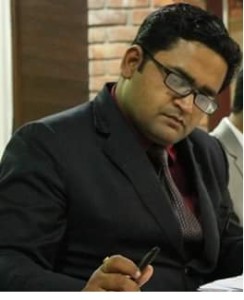Mooting Tips for Researcher & Speakers
“Advocacy is not an inborn art, but a skill that overpowers you with time and patience”
Saurabh Siddhartha
Saurabh Siddhartha
Assistant Professor, ICFAI University, Dehradun
While training my students and after adjudication sessions I suggest few of the things below-
1) For Researcher:
FACTS-
Draft very carefully your facts, keeping in mind the chronology of legal events and other events. Keep in mind where are you approaching and what facts would appeal and what irrelevant facts you need not to mention. Also, the facts as in Moot Problem must never be copied as it is. It gives impression of insufficient dedication. You are expected to summarize it cautiously in your own words which reflects the side you are preparing. If chronology allows you and you are at a situation to draw the facts, you can do so by putting the facts in your favour in language that must not suggest deviation or exorbitant addition. The purpose is to avoid distorted editing, yet reflection of facts favoring you. SO, keep your facts intact within a page or maximum one and a half.
Tips : It really depends on the order, schedule, that means if your team’s session is late, summarized and focused facts that support you will help great. After initial briefing, we generally expect detailed facts. So, never ignore facts.
STATEMENT OF JURISDICTION-
The biggest hurdle indeed. Learn from experiences and collect best memorials. Find a suitable start up language for presenting your statement of Jurisdiction. You need not to justify or insert footnotes here.
ISSUES-
A very confusing column. Students often ask me when it is already provided in compromis/moot problem. I always suggest two things- Don’t go for blunt copy cat, be creative, take these given issues as hint, but make your own hunting tool, Secondly, avoid suicidal issues for which you don’t have much authorities or analysis. Even if you are compelled to go for it, keep it at later stage, the placement. Issues should always suggest its sides. Since, it can lead to a blame game or justification, avoid raising issues for which justification from opponent sides may be very easy. For example- Whether respondent is liable to pay damages ? Rather, frame – Whether appellant performed the act xyz as per the agreement, thereby creating liability on respondents ? Self justification and putting onus on others is always appreciated than a plain blame game. Anyways, liability is to be adjudicated by courts and not you. So, draft the memorandum justifiably affirmative and firm on its own feet. At later stage, self justification would be easy then.
SUMMARY OF ARGUMENTS-
It must hold the very crux and founding pillars of your submissions with one or two very relying authorities. Plain denial without reasoning or authority would not suffice. As a matter of fact, we generally overlook detailed submission if we are not compelled by our reasoning or justifications to look into cited authorities or ratio of the cases. We, often take the girth of Summary of arguments and hence formulate questions. Being the researcher, your case lies in summary of arguments very often.
ARGUMENTS PRESENTED/WRITTEN SUBMISSIONS-
Nowadays, it has become fashion to flood the submission with footnotes, hence such a heavy reliance cannot be appreciated by judges of fine sense of reasoning and this really does not serve purpose of mooting. Though, authorities cited is of primary importance, but flooding weakens the memorial itself when we talk about originality and analytical reasoning. Secondly, not all cases in your favor may be inserted, you have to refine while keeping in mind two aspects of a case law- 1)Landmark & 2) Tests,fine observations,secondly-The authority from which the case law arrives, binding or persuasive. Hence, supplying much of pursuasive authorities may again lighten the weight. In case, where a landmark judgment is not in your favor, you may look upon the recent developments and observation of their lordships. Even a lost case can have very strong arguments by counsels. So, never lose your heart & construct them with a variety of binding(preferred), persuasive(in case you are satisfied with it).
PRAYER-
It cannot have a laid back approach. The relief you seek must be critically important to you, hence pray for the orders which suits you. Hence copying prayers from other memorials must be avoided. You are free to draft in your language.
______________________________
2) FOR SPEAKERS-
Mooting is not reading a sacred book. At every cost, avoid reading. Only a speaker who talks properly,satisfies the question analytically, citing the case laws to judges, deserves victory. Your memorials are for judges and an added assistance to you to enable, what is cited where. You must avoid to even read your arguments, because then you are not a speaker but a translator. So, a speaker must KNOW the arguments, practice in front of mirror or friends, formulate in his own language, such a wide freedom he has. He must not be a slave to his memorial, it is a trap. Hence, speakers must be sure of what he is speaking, we often kill their time, asking questions even if it is absent in their memorial, pressurizing him,testing his aggression and confidence. A speaker should be wise enough to stick to relevance, and know how to compel us to look through his citations. The more he has our eye contacts and hypnotic guidance to his citations,chances are,we will be impressed. As a speaker, time management is very important, so first speaker should be trained before hand, how much time to facts and two issues maximum to be spent. Maximum to issues because, he has to deal with Jurisdiction, if Jurisdiction is something dubious or not clear. Arrangement can be suggested as Polite comes first,aggressive counsel comes later. Then with maximum issues and prayer, the shoulders of second speakers has to be heavier.
Tip-Voice should reach us only.
DISCLAIMER: The Contents of this Website are informative only and for the benefit of the general public. Even though every care has been taken to ensure the correctness of information and procedure, the www.lawof.in is not responsible for any inadvertent errors and the same may please be brought to the notice through e-mail: info@lawof.in
.
 319
319



One comment
Comments are closed.